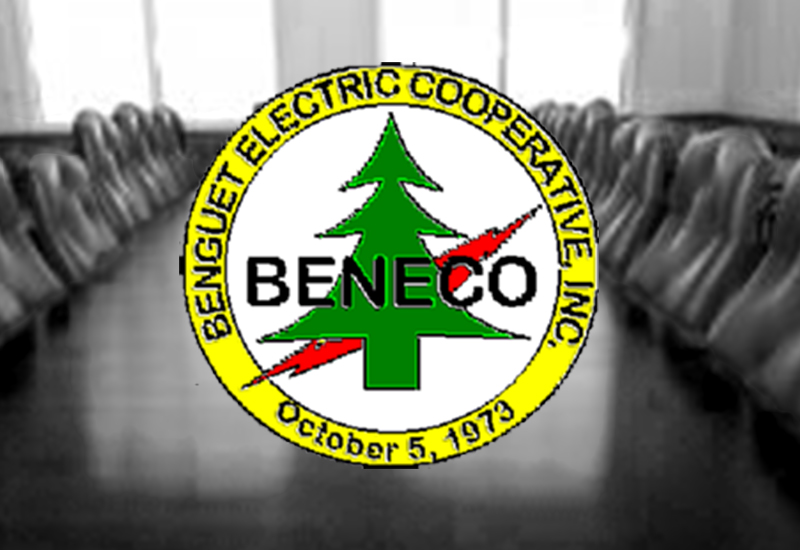BAGUIO CITY – The Benguet Electric Cooperative (BENECO) will be venturing in a rural network solar project to help in the electric cooperative’s efforts to independently develop available renewable sources of energy to continue providing cheaper power rates to consumers.
This developed as the National Electrification Administration (NEA) and the Department of Energy (DOE) through the Office of Undersecretary Felix Fuentebella approved Beneco’s application to receive a grant for the Rural Network Solar (RNS) under the European Union–Access to Sustainable Energy Program (EU-ASEP).
Beneco Power Generation Department Manager Engr. Ricardo Pallogan said that of the 30 electric cooperatives (ECs) that applied for the grant, only 7 ECs, including Beneco, passed the criteria and selection process conducted by the NEA and DOE.
He explained the RNS pertains to a 70 percent–30 percent grant-equity funding to embedded solar farms ranging from 1 megawatt to 1.5 megawatt capacity wherein the participating ECs will have to borrow for their equity from the NEA’s renewable energy loan window.
Under the terms and conditions of the grant, Pallogan explained that selected ECs will receive $1 million subsidy for capital cost buy-down while the ECs will put up not more than 30 percent of the cost, inclusive of pre-development and cost of land.
Further, he claimed the total value of investment, specifically grant plus equity, will total of $10 million while the estimated capacity per plant is $1 million per 1 megawatt.
ECs are mandated to prepare and submit their project proposals, project design; conduct distribution impact study and distribution asset study; conduct pre-development activities; submit applications for solar energy service contract at the DOE; apply for capital expenditure loan with NEA or interested commercial bank; supervise project implementation; facilitate the release of equity to winning energy power consumer contract and secure the necessary permits, endorsements and secure consent of the indigenous peoples and indigenous cultural communities.
On the part of the government, it shall prepare requests for proposals, secure no objection letter from the World Bank (WB) for the bidding documents with terms of reference and technical specifications; initiate bidding process for contracts; evaluate proposals and issue approvals and coordinate with the procurement committee and act as head of procurement committee where participating ECs will sit as members.
The DOE will be tasked to supervise the overall implementation of the RNS and achievement milestones; review application for Solar Energy Service Contract and declaration of commerciality; issue SESC and certificate of confirmation of commerciality; validate reports of successful commissioning; issue certificate of endorsement and sit as member of the procurement committee while the NEA is empowered to review and approve EC application for project financing and sit as member of the procurement committee.
The Energy Regulatory Commission (ERC) is tasked to review and approve applications for capital expenditures and operational expenditures recovery, CAPEX loan and issue certificate of compliance. By HENT













